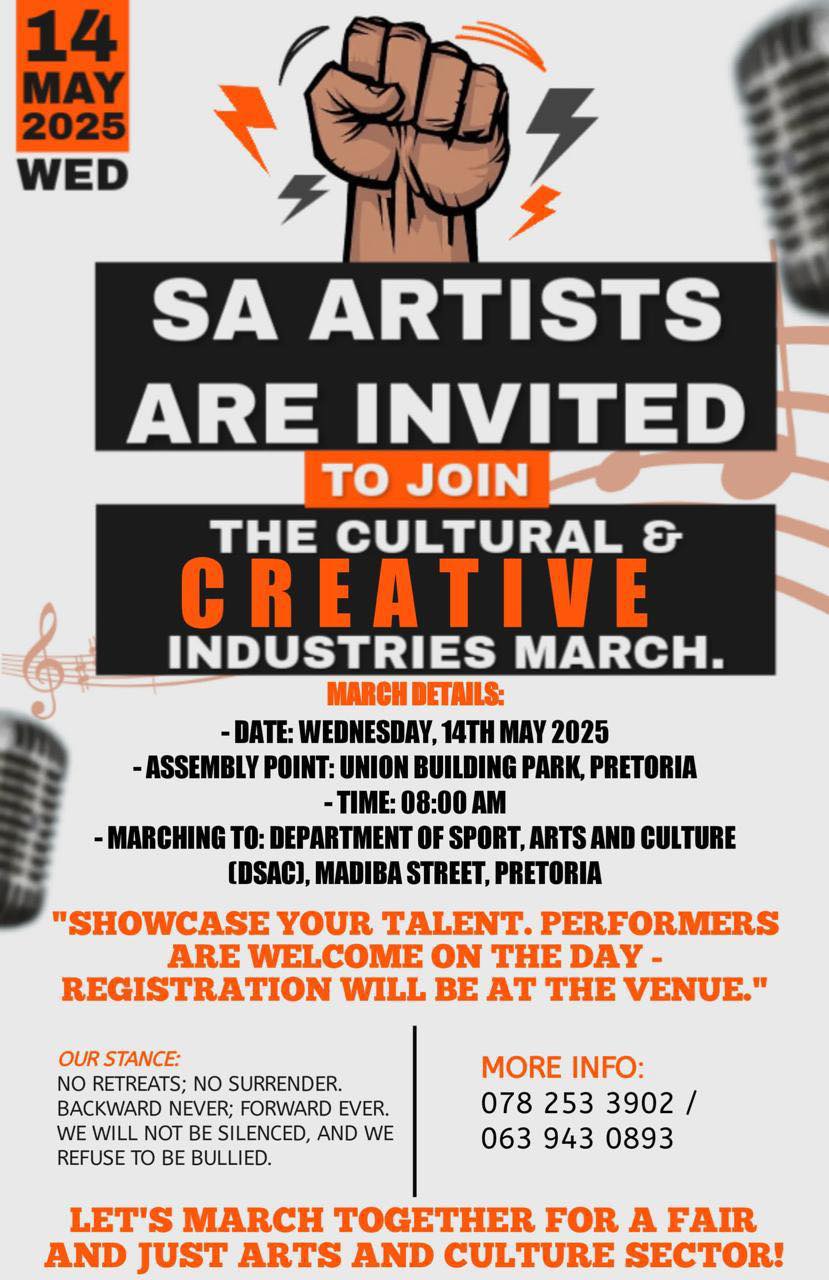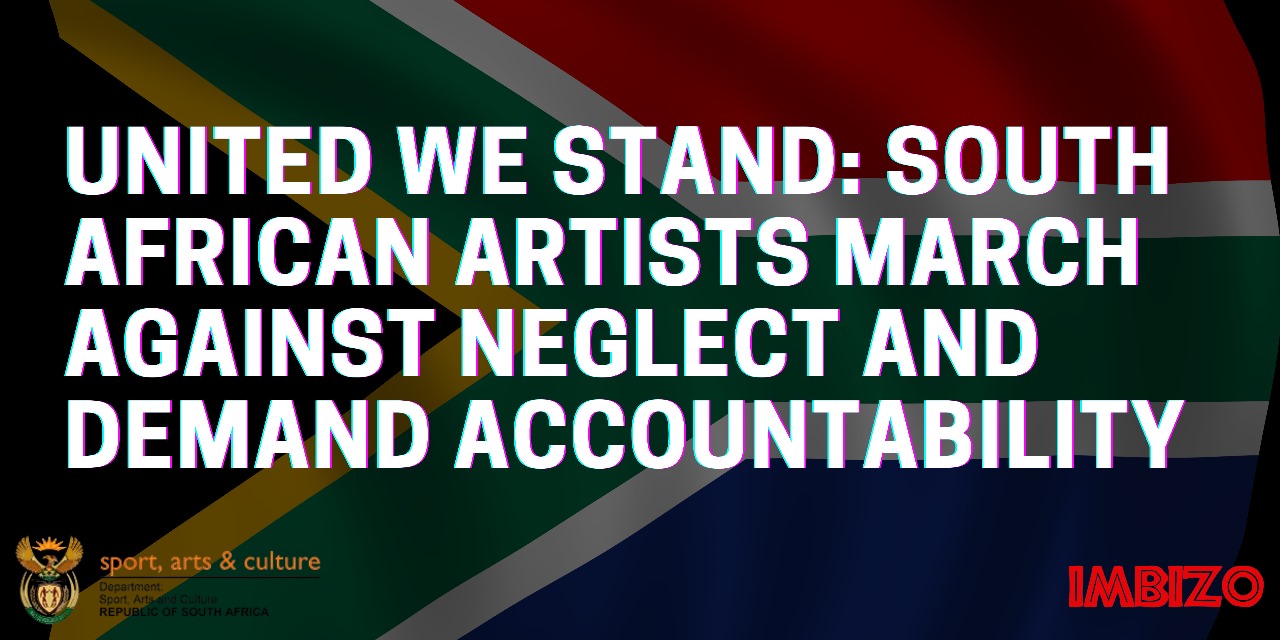A groundswell of frustration within South Africa’s vibrant cultural and creative sector is set to erupt onto the streets of Pretoria on Wednesday, 14 May 2025. Artists, performers, writers, and creatives from across the nation will converge at Union Building Park at 8:00 AM, embarking on a march to the Department of Sport, Arts and Culture (DSAC) headquarters on Madiba Street. This demonstration, aptly named the Cultural & Creative Industries March, is a powerful outcry against perceived neglect, lack of transparency, and what artists describe as “bullying” by the very ministry meant to champion their cause.
The planned protest is the culmination of a long-simmering discontent, fueled by issues ranging from opaque funding processes to a lack of meaningful engagement with industry stakeholders. The rallying cry for the march, “We refuse to be silenced, we refuse to be bullied,” resonates deeply within a sector grappling with precarious livelihoods, the closure of vital performance spaces, and limited opportunities, particularly for emerging talent.
Adding fuel to the fire, the Minister of Sport, Arts and Culture responded to the planned demonstration with a combative statement shared widely on social media. Dismissing the artists’ concerns, the Minister asserted that “Christmas is over,” referencing the allocation of R27.5 million to the Cultural and Creative Industries Federation of South Africa (CCIFSA) between 2015 and 2024. The Minister demanded proof of how these funds had tangibly benefited ordinary artists, declaring, “They can march a million times, but the gravy train is over for as long as I’m Minister.”
This dismissive response has only intensified the anger and determination within the creative community. Many artists view the Minister’s statement as a deflection from the core issues and a further demonstration of the department’s disconnect from the realities faced by those working in the sector.
Between 2015 and 2024, DSAC confirms the R27.5 million allocated to CCIFSA for operations, alongside an additional R11.5 million directed to the USIBA Awards in 2018/19. However, the prevailing sentiment among artists is that these substantial sums have not translated into tangible improvements on the ground. One cultural activist, speaking anonymously, articulated the stark reality: “Artists are dying broke. Shows are being cancelled. Young creatives have no access points into this sector. We keep hearing about funding, but where does it go?”
Furthermore, industry insiders have pointed out what they see as inconsistencies in the Minister’s demand for financial reports, suggesting that such documentation should already be within the department’s records. Calls are now growing louder for the public release of a forensic investigation report, which many believe holds crucial information regarding the management and distribution of funds within the sector.
Beyond the overarching demands for transparency, policy reform, and accountability for public funds, the artists have articulated a clear set of specific grievances directed at the DSAC:
- Release MGE 1st Call Results Now: Urgent demand for the immediate release of results for a key funding initiative.
- Stop Bullying Our Sector: Protest against perceived intimidation and disregard from the department.
- Stop Unilateral Cancellation of Funding Calls Without Industry Consultation: Condemnation of abrupt changes to funding opportunities without engaging the sector.
- Stop Flaunting Employment Equity: Concern that employment equity is being presented superficially without real impact.
- No to Dictatorial Behaviour Towards the Industry Stakeholders: Call for a more democratic and inclusive approach to decision-making.
- Stop Preferential Appointment in DSAC Agencies Boards: Demand for merit-based appointments prioritizing expertise.
- NPCs Deserve Funding: Advocacy for adequate and equitable funding for Non-Profit Companies in the sector.
- Stop Appointing CEOs with No Expertise in Our Sector: Emphasis on the need for sector-specific knowledge in leadership roles within DSAC agencies.
The public discourse surrounding this critical juncture for South Africa’s arts and culture, particularly on social media, reveals widespread support for the artists’ demands. Many citizens are echoing the calls for transparency and accountability in the management of public funds allocated to the creative sector, recognizing its significant contribution to the nation’s GDP, tourism appeal, and cultural identity.
As the date of the Cultural & Creative Industries March draws nearer, the government faces a decisive moment. Will the department choose a path of meaningful engagement and address the legitimate concerns raised by the artists? Or will this protest mark the beginning of an even more protracted and contentious struggle for dignity, recognition, and equitable treatment within South Africa’s vital creative sector? One thing remains clear: the artists are no longer willing to remain silent.


D400 MANGOSUTHU HIGHWAY UMLAZI Durban 4066